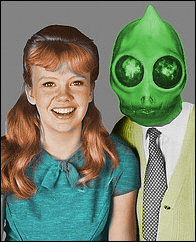Years ago comic book companies were loathe to kill off a character. Killing off an asset meant you couldn't use it anymore and that was poor business. Once a book was written into a corner it was very difficult in terms of artistry to recreate or return to the character. Way back when, a company was primarily supported by the comic book sales side of the business and a major change to a character such as death could result in financial disaster if the fans do not accept the resurrection or new version. So the death of a hero wasn't taken as lightly as it is today.
It used to be that when a hero actually died, it meant something. It was done for the logical drama and was usually an organic part of the story and not shock value. Who didn't get chills when Manhunter blew himself up? Cheeks dying alone in that alley still haunts me. I'm still in shock that Supergirl was killed and I'm angry at Jim Shooter for deciding that Jean Grey had to die to pay for her crimes.
Soon, it became trendy for heroes to die. It was profitable. It became increasingly common for heroes to sacrifice themselves in the final issue of a canceled comic book. It became a cliche and was pretty much expected that the hero would expire in some grand gesture saving the world. A climactic death scene meant a final surge in sales before the title was pulled, renewed fan interest and therefore a possible later return.
When the Steve Englehart creation of the Coyote was canceled the question of whether or not Coyote would survive the demise of the title became sort of a running gag
not only in that book, but that of the title of its' spiritual companion in indie comics, the Badger. Coyote had been under the threat of cancellation for a while and after struggling to find an audience for several months it was ultimately cut from the schedule due to low sales.The creative team new cancellation was coming and had ample time to prepare the storyline to end without seeming too obviously rushed in Coyote #16 (January 1986). The dialog in the remaining chapters was all very meta and self aware as Coyote and his team kept asking if they would make it through the final battle with the Shadow Cabinet. The title character even broke the fourth wall in the final issue to shout out joyously to readers "We all Survived!"
Coyote had defied convention in all of it's various incarnations so it is very appropriate that Coyote did not also follow the same fates of other contemporary comic book heroes by dying in a shallow dramatic moment. Due to the cleverness of writer Steve Englehart the Coyote title did not conclude with a funeral. The series actually ended with the extreme opposite of a funeral, an orgy!
Tags: Final Panels from Canceled Comic Books
Friday, August 03, 2007
The Final Panels from Canceled Comic Books: #3 - Coyote
Posted by
Sleestak
at
8/03/2007 03:30:00 PM
![]()
![]()
Subscribe to:
Post Comments (Atom)


























In case you want another great last issue, last panel suggestion - may I offer Strikeforce: Morituri #31, which has the survivors simply offering a toast to the readers.
ReplyDeleteWell, it seemed that way to me...
(I did a li'l writeup on it last year with that panel, in case you want to save some google time. S'why I remembered it.)
Ah, more evidence that Steve Engelhart was Grant Morrison before Grant Morrison was.
ReplyDeleteSo did Coyote ever return?
A few small guest appearances and that's it.
ReplyDeleteI liked Badger.
ReplyDelete